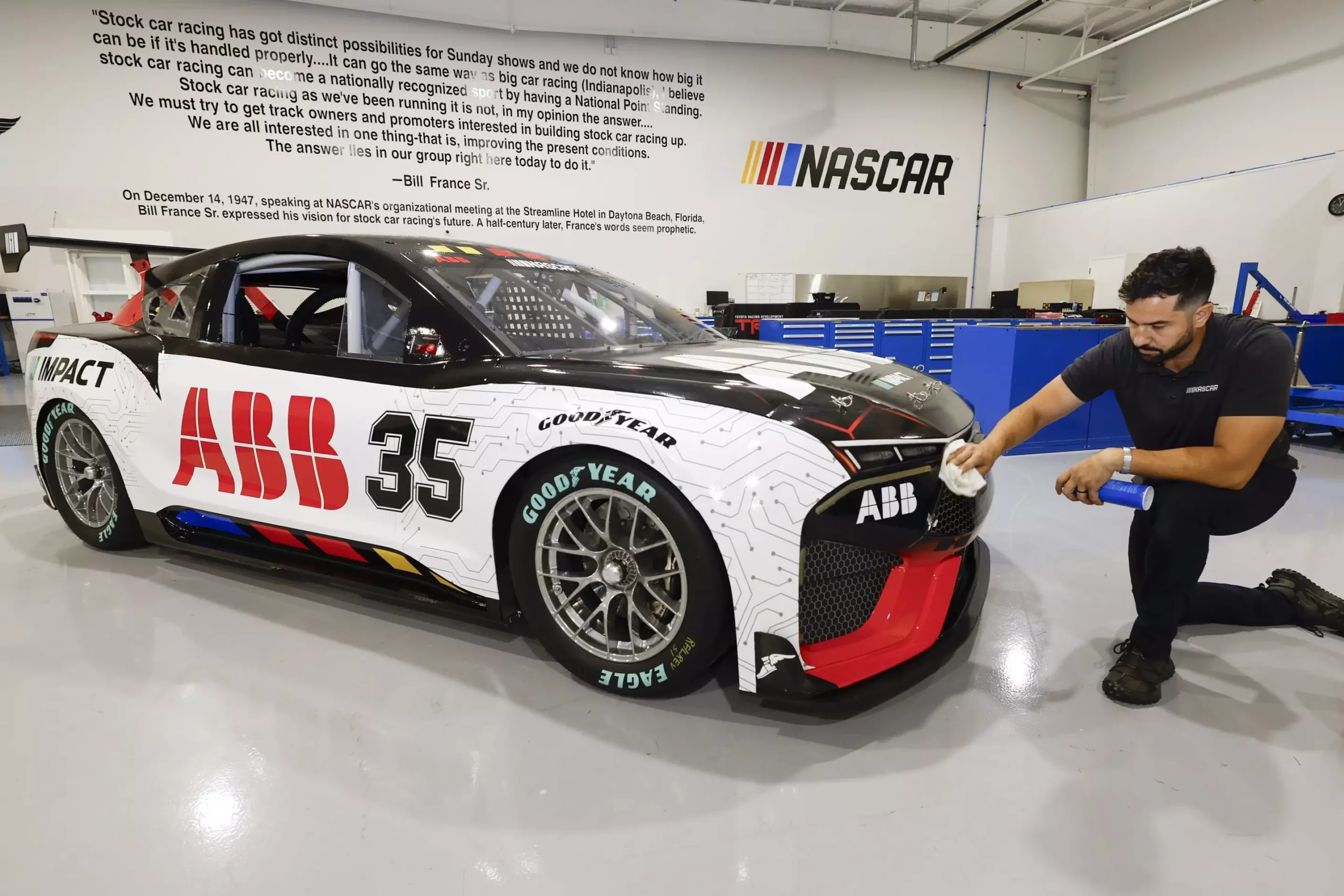NASCAR, known for its thunderous engine roars and high-speed races, unveiled its first electric racecar in downtown Chicago. This marks a significant shift for the motorsport giant, as it partners with major automakers like Chevrolet, Ford, Toyota, and ABB to venture into the realm of high-performance electric vehicles. The goal is to showcase electric racing as cool, fun, and accessible to a wider audience of fans and enthusiasts.
Unlike traditional gas-powered cars that fill the air with exhaust fumes and deafening engine noise, the electric racecar emits a subtle hum as it speeds around the track at over 150 mph. NASCAR driver David Ragan, who took the prototype for a spin, described the experience as surreal, with the absence of the familiar gasoline-driven smells and intense engine sounds. The transition to electric vehicles in racing brings a whole new sensory experience to both drivers and fans.
Research shows that NASCAR fans, particularly those surveyed, are more inclined to purchase electric vehicles after being exposed to them through racing events. With a focus on sustainability, reducing emissions, and optimizing energy usage, NASCAR aims to educate and engage its fanbase through the electrification of its racing series. The potential market impact of electric racing could revolutionize the way fans perceive and interact with the sport.
By introducing the electric racecar, NASCAR embarks on a broader sustainability plan that includes electrification partnerships to bring renewable energy sources to its tracks and facilities. The shift towards sustainable racing fuels, plant-based composite materials, and hydrogen-powered vehicles signifies NASCAR’s commitment to reducing its environmental footprint. The incorporation of electric vehicle charging stations at race tracks further promotes clean and accessible energy solutions.
As NASCAR explores the possibility of electric racing series, there is a potential to reinvent the fan experience by integrating new elements like DJs and innovative technologies. The evolving landscape of motorsports, with the introduction of electric and hybrid vehicles, opens up new opportunities for fan engagement, entertainment, and technological advancements. The racing industry is at a crossroads, embracing sustainability while enhancing the thrill of racing competition.
With the growing popularity of electric vehicles in the consumer market, the transition to electric racing seems inevitable. Major automakers like Ford Performance are already paving the way for electric racing vehicles, anticipating a shift in consumer preferences and interests. The rise of U.S. electric vehicle sales and the increasing focus on clean energy solutions signal a transformative era in the automotive and motorsports industries.
The future of NASCAR racing lies in the electrification of its vehicles and the incorporation of sustainable practices. By embracing technological innovations, engaging fans in new ways, and promoting clean energy solutions, NASCAR sets a precedent for the motorsports industry. The introduction of the electric racecar signifies a turning point in the way racing is perceived, experienced, and enjoyed. NASCAR’s journey towards sustainable racing is not only a leap towards environmental conservation but also a step towards reshaping the future of motorsports.


Leave a Reply